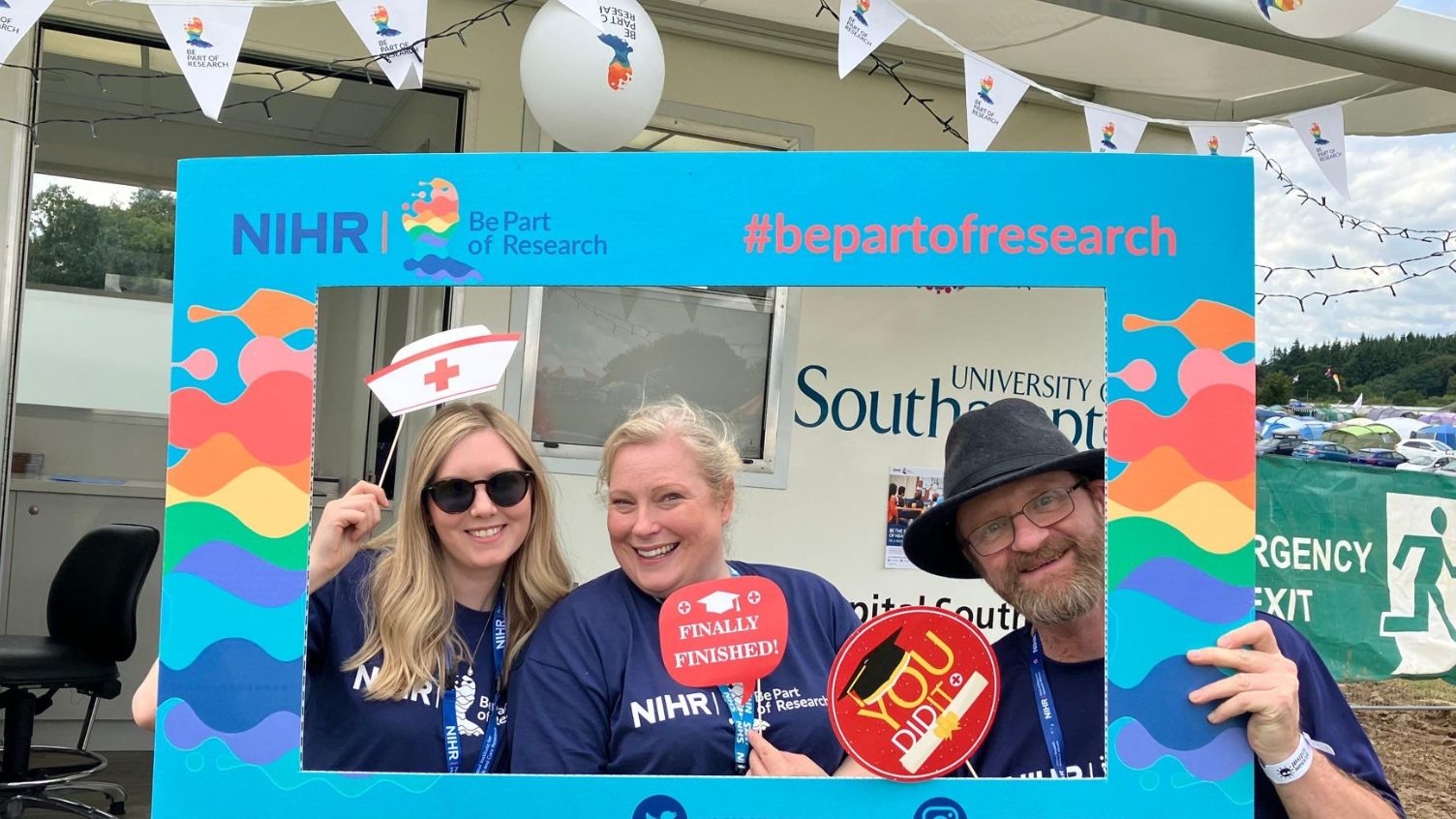“I have always wanted to help make people feel better” - Clinical Research Practitioner describes her inspiring path in research
- 13 November 2023
- 3 min read
Katy Cooper, a Clinical Research Practitioner (CRP) at Cambridge University Hospitals NHS Foundation Trust (CUH), dreamed of being a nurse when she was a child, and has “always wanted to help make people feel better.”
"The role of CRP is unique because so many of us have different skillsets that can be used, as you don't have to come from a specific background, such as nursing or radiography."
Katy Cooper, a Clinical Research Practitioner (CRP) at Cambridge University Hospitals NHS Foundation Trust (CUH), dreamed of being a nurse when she was a child, and has "always wanted to help make people feel better."
It was this desire to help people that led Katy to work in a nursing home as a teenager before working at CUH as a healthcare assistant on an elderly care ward. She later left that role and moved to the radiotherapy department, working as an appointment coordinator.
Katy missed the patient-centred care and was intrigued by the clinical side of the role, so she decided to develop her career in radiography. She completed a two year foundation course and became an assistant practitioner, a role she held for over a decade.
During this time, Katy was fascinated by the clinical trials that were happening in radiography, including trials looking at shortening the duration of breast and prostate cancer radiotherapy treatments without compromising outcomes, and she decided to apply for the role of CRP.
CRPs are an essential part of delivering the National Institute for Health and Care Research (NIHR) study portfolio, and they work to deliver safe, ethical and high-quality clinical research care. They make up around a quarter of the research workforce.
"I wanted to know what made people interested in taking part in research", she said. Her application for the role of CRP was successful, and she has been in the position for five years.
Katy looks after the head and neck cancer, lower gastrointestinal, gynaecology, sarcoma and neurology portfolios and her day-to-day work involves a "nice mix" of patient-centred care and administrative tasks.
She selects patients from multidisciplinary team (MDT) lists who may be suitable to take part in research and follows them from diagnosis through to treatment, talking to them about studies and answering their questions, booking appointments, and regularly checking in with them.
"The role of CRP is unique because so many of us have different skillsets that can be used, as you don't have to come from a specific background, such as nursing or radiography.
"This is really beneficial because it means that you get a whole group of different people that bring in a wealth of benefits and experiences."
Katy highlights patient contact as her favourite part of her role, from building a rapport with patients to raising awareness at events and being involved in support groups.
"I meet patients soon after they receive their diagnosis, so I'm on their journey from going through treatment and then up to however many years the study wants to capture.
"You get to know your patients and you get to build a relationship with them, which is something that I really enjoy."
Looking toward the future and her career ambitions, Katy would like to conduct her own research on the psychological effects of human papillomavirus (HPV) related head and neck cancers.
Katy notes that one of the advantages of working in research is that there are many varied roles requiring different skillsets, from working in a laboratory to administrative roles.
"I think one of the great things about working in the NHS is that there are so many varied roles that you can do.
"Research roles are really rewarding and the great thing about working in research is knowing that what we're doing is for the greater good, because we want to find out the answers to improve care and patient outcomes."
Research and innovation play a vital role in shaping the future of health and care. By embarking on a research career, you can contribute to improving patient care, health outcomes, and the overall advancement of the NHS.
Find out how you can shape the future of health and care research.


